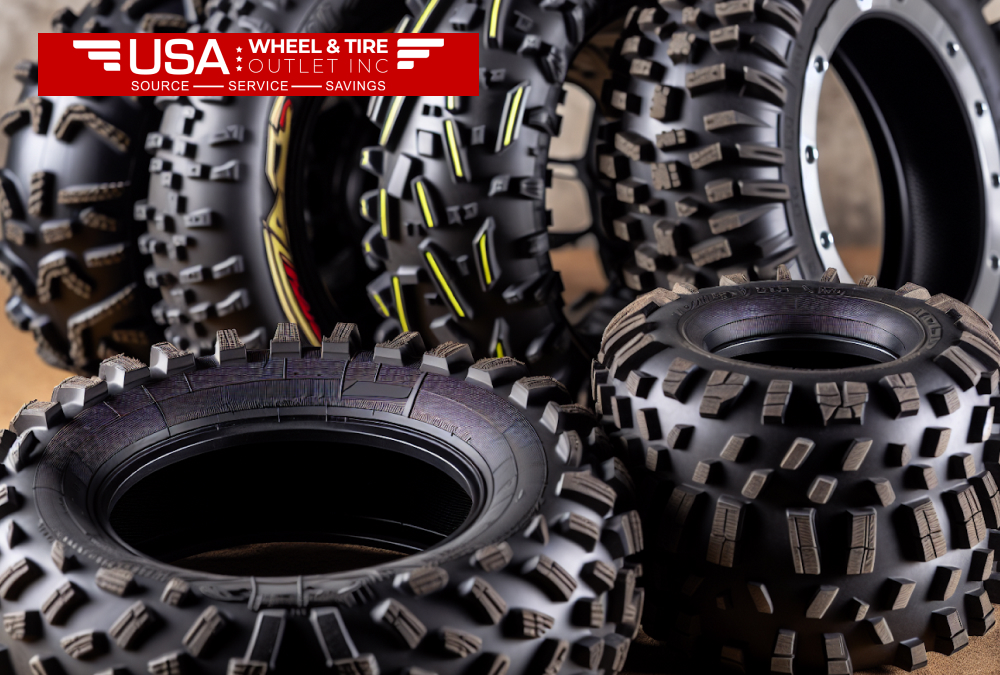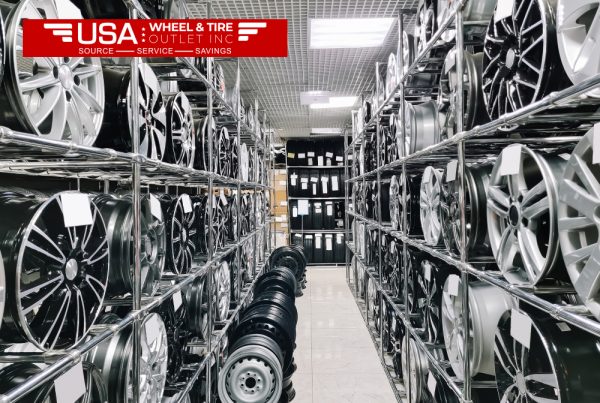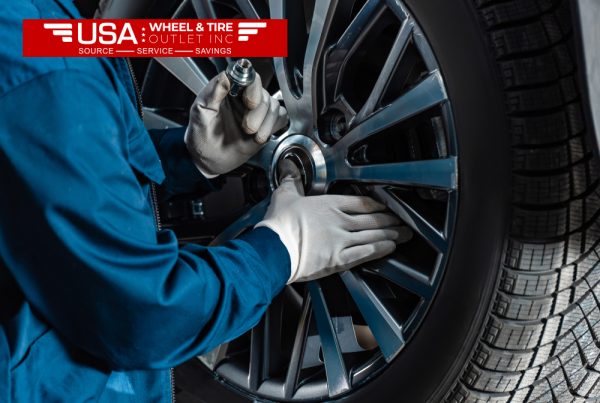Off-road adventures are thrilling however, they need the right equipment. The most important aspect of ATV Wheel performance is its wheel and tire. The best choice of tire and wheel will make a huge difference in grip, durability in general performance. This guide will outline the best choices, important considerations and the best way to maximize your ATV’s performance for any terrain.
Why Choosing the Right ATV Wheel and Tires Matters
ATVs are exposed to rough terrains, such as rough trails, muddy tracks or sandy dunes. The tires must be strong enough to endure the conditions and the wheels should be able to support the weight and keep balance.
Important Advantages of Quality ATV Wheels and Tires
1. Long-Term ATV Tires: Puncture Resistant, Wear Resistant
2. Off-Road Grip: Better Traction Over Varied Landscapes
3. All-Terrain Tire Wheels: Multi-Purpose for Various Landscapes
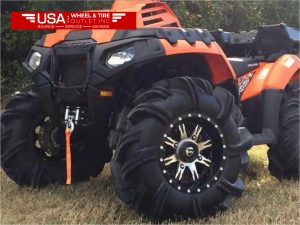
Things to consider before buying:
Terrain Compatibility: Some tires do not fit all tracks.
Material Quality: Ensures security and reliability
Size Fitting: Prevents injuries
Budget: Quality is often costly
Top 5 Best ATV Wheel and Tires for Off-Road Excursions
1. Maxxis Bighorn Radial Tires
Features:
Why It’s Great:
2. ITP Mud Lite II Tires
Features:
Why It’s Great:
3. Carlisle All Trail ATV Tires
Features:
Why It’s Great:
Maintaining Your ATV Wheels and Tires
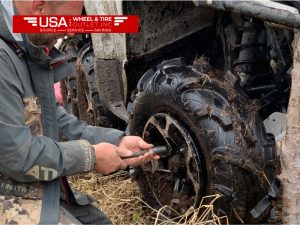
Tips Essential for maintaining
Selecting the ATV Tires to Suit Terrains
The most effective ATV tires and wheels can’t simply be picked off the shelves. The most important thing is to choose the kind of terrain the which you’ll travel. The tires can also be selected in accordance with the specific conditions which is why it’s important to consider which kind of tire we should use in which conditions.
1. Mud Terrain Tires
Specially designed to perform for wetter, muddier or soft conditions, tires are made to provide maximum grip. Wide lugs with deep widths are typical in these tires so that they can provide adequate grip in mud-filled conditions.
tApplication for swampy trails: Muddy trails and waterlogged trails
2. Sand Tires
If you intend to ride along beaches or sand dunes then you’ll need tires that can provide flotation. Sand tires have large, paddle-like lugs that aid in letting your ATV flotation on top of the sand instead of sinking into it.
3. Rock and Trail Tires
For rugged and rocky terrains it is necessary to have tires that can withstand rough stones, loose gravel and uneven surface. These tires have a strengthened sidewall as well as a tough tread pattern that reduces the chance of punctures.
4. All-Terrain Tires
All-terrain tires are among the most flexible, since they can be used across a range of terrains, from dirt trails to light gravel roads or mud. They are designed to provide the ability to balance on various terrains, which is ideal for cyclists who prefer mixed terrain.
Why Upgrade Your ATV Wheel
In According to USA Wheels Tires INC, Upgrades to your ATV’s wheels can enhance the performance of your vehicle in general. A set that is right for you can help make your ride optimal in terms of ride as well as traction and the design. Let’s look at the benefits of wheels made from high-quality materials.
1. More Durable
More resistant to impact, durable against corrosion and less prone to wear, wheels constructed of aluminum or forged alloys are stronger. If you’re driving through rocks, mud and gravels, the durability of wheels made from such components ensures a long-lasting mileage and a better performance.
2. Better Performance
The correct set of wheels can make a an impact on the way your ATV controls and balances. For example, wheels that are lighter are less sprung weight that can lead to greater control over bumps as well as trails.
3. Enhanced Aesthetics
Wheels don’t only focus on performance. They can also provide an elegant look for your ATV. Many riders choose custom wheels to will make their ATV stand out and provide it with distinct appearance.
ATV Tire Optimization for Maximum Longevity
The life expectancy of your ATV’s wheels and tires is contingent on a variety of aspects, such as riding habits, maintenance and the kind of terrain you’ll encounter. Here are some guidelines to increase the lifespan of your tires.
1. Regular Tire Inspections
Be sure to inspect your tires prior to every excursion to ensure that there aren’t cracks, punctures or any other damage. It is also essential to inspect the tread depth frequently since when the treads on tires wear they are unable to hold the road well.
2. Proper Inflation
The uneven wear and decreased traction may be due to insufficiently or excessively inflated tires. Follow the manufacturer’s recommendations for tire pressure to ensure that your ATV is operating at its peak performance and prolong the life that your tires. Typically it is recommended that the tire’s pressure ranges between 6-8 psi for ATVs in general, but it could differ based on the type of tire.
3. Tire Rotation
Like your automobile rotating your ATV tires can ensure that they wear evenly. This can extend the life of your tires and help keep your ride level, especially when you’re often riding in one direction (like when you’re on a long trail).
4. Use Tire Protectants
The application of tire protectors prevents the rubber from drying and cracking out, particularly when you keep your ATV over long periods. Products that provide UV protection could help in prolonging the life the tires have, specifically when you live in a warm climate.
Conclusion
The most effective ATV wheel and tires are essential for off-road excursions. They ensure security, durability, and maximum performance. From durable ATV tires such as Maxxis Bighorn to versatile wheels like the ITP SS112 there’s a variety of choices. It is important to prioritize your terrain requirements and ensure you make the most from your ATV.
Read Also: Best Off Road Trailer Tires for Rugged Adventures
FAQs
1. What are the most suitable types of tires for ATVs that are suitable for off-roading?
The most appropriate ATV tires to use off-road depend on terrain. In soft or muddy terrain Mud tires with aggressive, deep tread patterns will provide better grip. For hard-packed or rocky surfaces All-terrain or sand tires with reinforced sidewalls and bigger contact areas will give you stability and endurance.
2. What is the proper size of tire on my ATV?
To determine the appropriate size tire to fit your vehicle, check the owner’s guide or the sidewall of the tire for suggested sizes. Things like the weight of your ATV as well as the intended terrain and the kind of riding (recreational or racing, for instance.) affect the size of your tire. Larger tires have more ground clearance but could limit maneuverability.
3. What is the different between bias-ply and radial ATV tires?
Radial ATV tires are equipped with belts that run along the tread perpendicularly. This provides an easier ride and greater grip on difficult terrain. Bias-ply tires feature layers of rubber that run in an angle. They offer greater durability and puncture resistance in tough terrains, yet provide smoother riding over rough terrain.
4. Can I put on automobile tires on my ATV to go off-road?
Car tires aren’t the best ones for ATVs since they are intended for other reasons and are not durable enough and have the tread patterns that are required for off-road adventure. ATV-specific tires offer the right construction, the traction, and load-bearing capability needed for rough terrains and off-road conditions.
5. What are the factors I need to consider when selecting ATV wheel?
When choosing ATV wheel take into consideration factors such as durability, the material (steel against. aluminum) dimensions of the wheel, weight, and the design. Steel wheels are durable and cost less, whereas aluminum wheels are lighter and resistant to corrosion. Be sure that the wheel’s size and bolt pattern is in line with the specifications of your ATV.
6. Do I need to have different ATV tires to handle various weather situations?
Weather conditions play a crucial part in the tire’s performance. Tires with studs or that have special treads are more effective on ice or snow. Large lugs and abrasive tread patterns are more useful for muddy or wet terrain. In dry or rocky and desert-like terrains, tires with all-terrain tread feature a smooth tread that will provide the highest performance.

